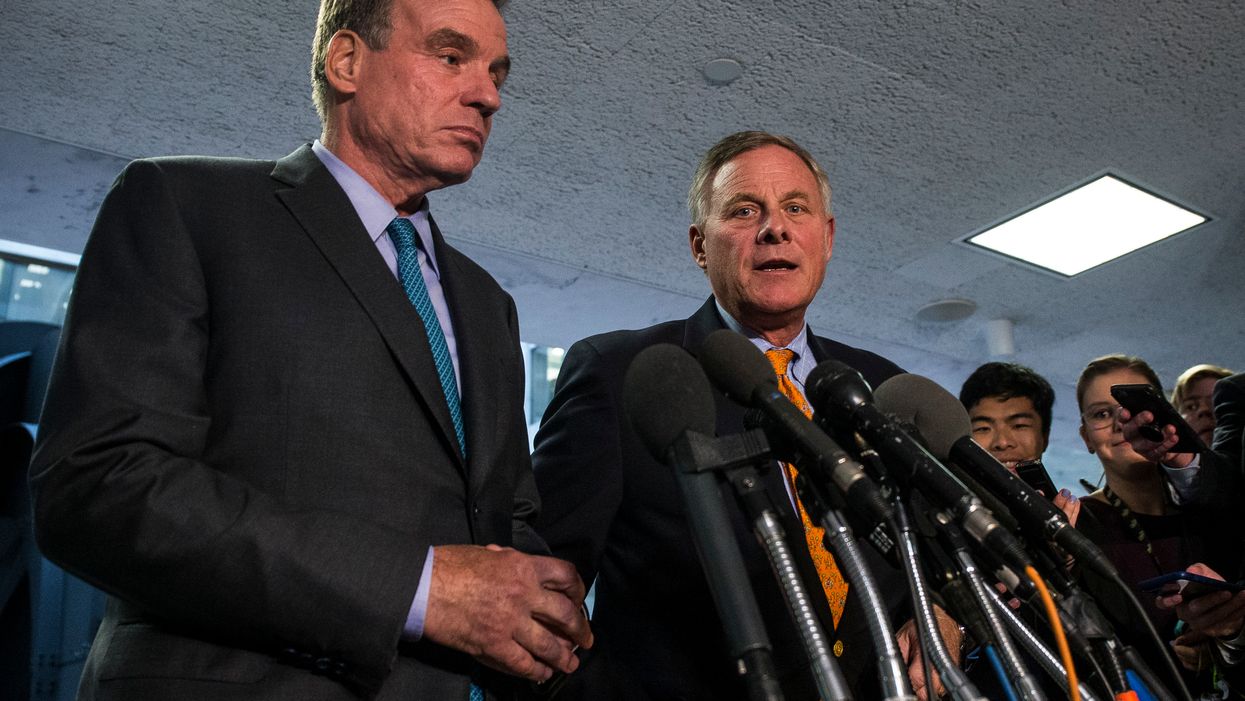Gun rights. Racism. Immigration. When it came to disrupting the 2016 presidential election, Russian operatives knew all the hot buttons to push on social media, according to a report released Tuesday by the Senate Intelligence Committee.
And push them they did, in what the report found was a clear and multifaceted effort to help Donald Trump and undermine Hillary Clinton — in a disinformation campaign virtually guaranteed to be resurrected with fresh approaches in the coming year.
"Russia is waging an information warfare campaign against the U.S. that didn't start and didn't end with the 2016 election," the committee said. "Their goal is broader: to sow societal discord and erode public confidence in the machinery of government. By flooding social media with false reports, conspiracy theories, and trolls, and by exploiting existing divisions, Russia is trying to breed distrust of our democratic institutions and our fellow Americans."
The 85-page report is the second volume summarizing two years of work by the committee — which is unique among the congressional investigations of Russian interference in the election because it has been conducted with an emphasis on bipartisan collaboration by the Republican chairman, Richard Burr of North Carolina, and the Democratic vice chairman, Mark Warner of Virginia.
The executive and legislative branches and Silicon Valley will all have to work together to ensure social media sites aren't exploited in the coming election, they agreed. But as for specific legislation, the only proposal endorsed in the report is bill known as the Honest Ads Act, which would require big social media companies to disclose the funders of political ads on their platforms.
Otherwise, Warner (one of the primary sponsors of the Honest Ads Act) and Burr underscored their very different preferences for how intimately Congress should be involved in tackling the problem.
In a joint statement releasing the second volume, Burr called for cooperation among social media companies, federal agencies, law enforcement and Capitol Hill.
Warner called for more assertive legislative intervention, because the 2016 election made clear that "we cannot expect social media companies to take adequate precautions on their own. Congress must step up and establish guardrails to protect the integrity of our democracy."
He said Americans need more control over their data and need to know who is paying for online political adds. Social media companies need to ensure that they are identifying phony accounts and postings and rooting out defamatory or fake content.
Among the report's findings:
- Black people were targeted more than any other group or demographic. Russian operatives targeted African-Americans by encouraging them to sign petitions, share personal information and, in one case, help fund self-defense courses in exchange for information about those attending.
- Social media activity by Russian operatives actually increased after Election Day. Analysis of accounts controlled by these groups found large increases in activity on Instagram, Facebook, Twitter and YouTube after the election.
"The committee found that Russia's targeting of the 2016 U.S. presidential election was part of a broader, sophisticated and ongoing information warfare campaign," the report says, and Russia's approach was "a vastly more complex and strategic assault on the United States than was initially understood ... an increasingly brazen interference by the Kremlin on the citizens and democratic institutions of the United States."
Among the committee's recommendations are that social media companies communicate more quickly with the government, law enforcement and individuals when inauthentic accounts are discovered.
And, in what carries an ironic twist, the committee called on Trump (who has denied Russian interference in the 2016 election) to warn people about the problem in advance of the 2020 election.
"A public initiative to increase media literacy and a public service announcement campaign could also help inform voters," the committee recommended.




















